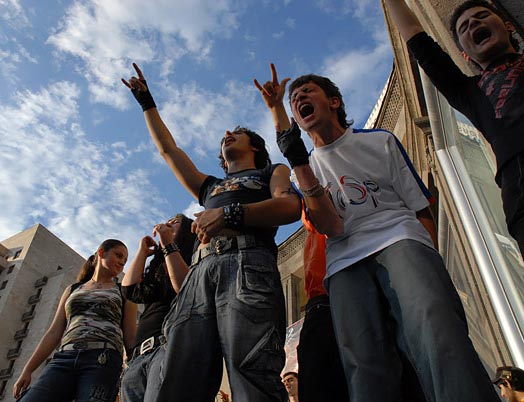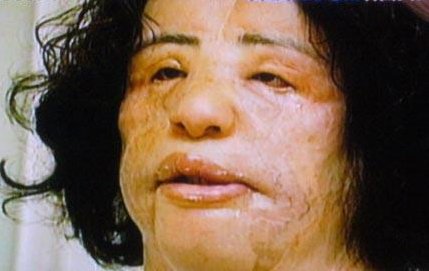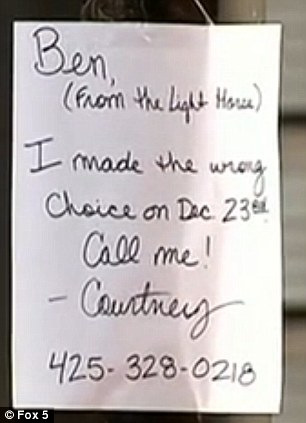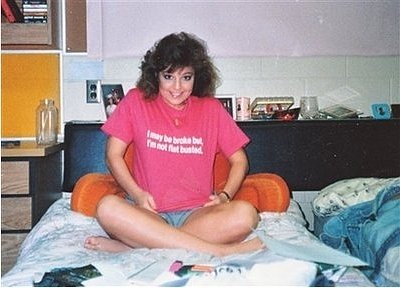We call it the 2012 Burning Man ticket disaster because that’s what it seems like – a disaster. Something tragic for the many veteran burners as well as virgin burners who hoped to get tickets to Burning Man 2012 (August 27 – September 3), but didn’t. A surprising number of people who applied in the Burning Man ticket lottery didn’t get them – but how shocking was it, really? From reading various stories and blogs, it appears that many people had expected it – everybody except for Black Rock City LLC board members.
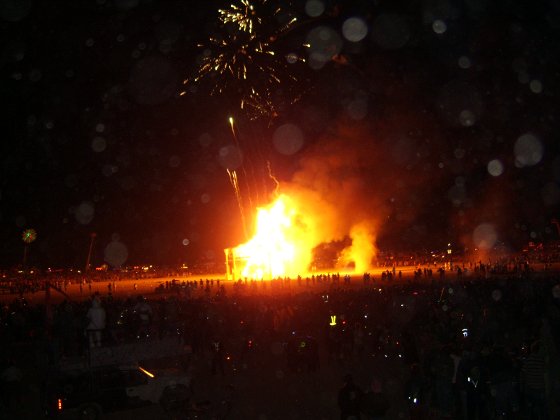
The Man Burns (2006)
The problems started last year, when Burning Man 2011 advance tickets sold out for the very first time in the art festival’s 26+ year history. When Larry Harvey and Jerry James burned a wooden man on San Francisco’s Baker Beach back in 1986, it was deemed by Harvey to be a “radical act of self-expression.” About 20 people took part in the party and it didn’t cost a thing. Four years later, when the burn took place at Black Rock Desert, Nevada, there were hundreds of participants. It soon grew into the thousands, and in 1995, a 40 foot man was burned, witnessed by at least 4,000 people who paied $35 a ticket. The money helped take care of certain things, like paying off Nevada’s Bureau of Land Management (BLM). As more people showed up each year, more rules had to be created, like speed limits, fireworks/gun bans, animal bans, etc.
By 2010, attendance had breached the 50,000 mark and ticket prices were now over $200. In 2011, about 54,000 people attended a now-sold-out event. Because of this, the Burning Man Organization decided to hold a Burning Man ticket lottery for 2012, which was a complex multi-round system of sales. It started late 2011 with 3,000 pre-sale tickets at $420 a piece, at a limit of 4 per person, and through random selection. The most recent round of tickets – January 2012, involved sales of 40,000 tickets (3 tiers of $240/$320/$390 per ticket, limit 2 per person). The actual number of tickets requested exceeded 40K, and a huge number of people did not get awarded tickets. Marian Goodell, a founding member of Black Rock City LLC, said that they determined that only 20%-25% of key people needed to bring major theme camp and art projects to Burning Man 2012 were awarded tickets. Because of the ticket lottery system, lots of people used friends and more than 1 credit card to secure way more tickets then they thought they would need, in order to increase their chances in the lottery. But then there was the other problem – scalpers. (Go to eBay and find tickets on sale starting at $760, going as high as $5500!)
As described here:
The average prize was in the hundreds of dollars and the entry cost was zero – a system incredibly attractive to scalpers and entrepreneurs. 2/3 of our camp didn’t get tickets this year and yours probably didn’t either. Secondary markets exist and exert an influence on behavior. BM tickets have a market value of at least $390 and are easily sold on craigslist, stubhub, & ebay. Would you buy a ticket right now for $390 if offered? I would.
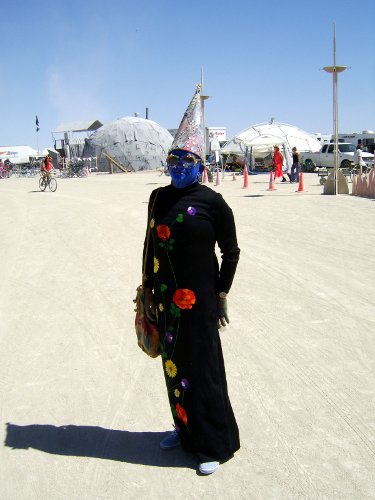
Will Uncle Ira be able to make it this year?
From SFBG:
The LLC has asked many established theme camps and art collectives for specific information on how many of their members still need tickets. There were 700 registered theme camps in 2010, as well as 275 registered art installations, and 1,000 art car permit applications. The LLC is considering canceling the open ticket sale that is scheduled for March 28, at which the final 10,000 tickets were to be sold online on a first come, first served basis. Instead, they would sell some or all of those tickets through the leadership of established theme camps and art collectives.
Dedicating tickets to the theme camps makes sense, since they are so much a part of the Burning Man experience now. Some people worry that because so many experienced people don’t have tickets, the art will certainly not be up to par this year, and the infrastructure/operational viability of Black Rock City will suffer.
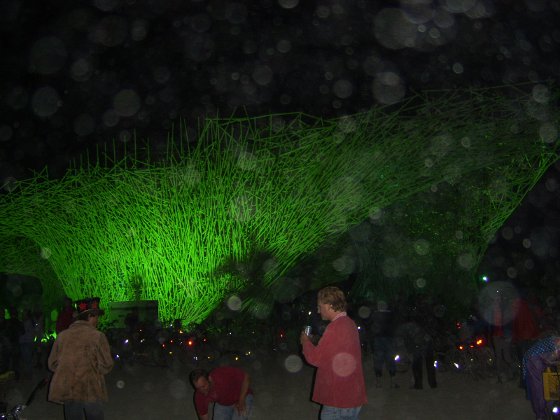
Uchronia aka The Belgian Waffle
Burning Man is a festival that runs on a gift economy. No money is exchanged on the playa (except for in center of camp, where proceeds from the sale of coffee and ice go to pay for staff food and are donated to the nearby towns of Empire and Gerlach for putting up with incoming burners turning their small, remote towns upside down). But, typically, you don’t buy things at Burning Man; you give them away (or perhaps trade). There’s an irony in that real world economics has thrown a wrench into that machinery. Because of Black Rock LLC’s lack of foresight, many people who have spent a lot of time and effort in preparation (you can’t just decide to go to Burning Man the day before) may have spent it for nothing. But perhaps Burning Man has just gotten too popular; too big. Growing cities must eventually expand. If BLM won’t allow further expansion into the Black Rock desert, than Burning Man must find a new, larger location. That is, if they want to allow more participants. This may not be a wise choice, either. The alternative is to concentrate on smaller burns – to “spin off” Burning Man, as it were. In any case, we suspect that the ticket lottery system will never be used again.
